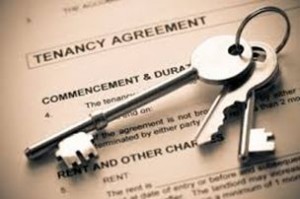Landlords Responsibilities
What are landlords responsible for?
If you are renting out your property or thinking about it but are a bit unsure of what landlords legal responsibilities are, there are quite a few rules and regulations you have to be aware of. Getting it wrong can cost you a lot in terms of time, hassle and money.
Homeowners who end up renting out their property because they couldn’t sell it could be at greater risk of unknowingly breaking the law due to lack of awareness of what landlords are responsible for. The consequences for getting it wrong can be serious.
Most people are aware that the landlord is responsible for repairs and maintenance to the property but if you are unsure, here are a few guidelines.
How to Find a Buyer For Your Home if You Can’t Sell it. >>>
Landlords safety responsibilities
Gas Safety
If the gas appliances in your property are unsafe your tenant could be at risk of fire, explosion or carbon monoxide poisoning.
If there are any gas appliances in the property that you have provided, you must ensure that annual gas safety checks are carried out. These checks must be carried out by a Gas Safety Registered engineer and a copy of the inspection report must be given to the tenant before they move in. The check must have been carried out no more than 12 months before the tenant moves into the property. Checks must be done annually and copies of all certificates must be provided to the tenant.
Failure to follow gas safety requirements is a criminal offence and can result in fines or imprisonment (Not to mention potential harm to your tenant).
More information: http://www.hse.gov.uk/gas/domestic/faqlandlord.htm
Electrical safety
There is currently no statutory requirement to have annual safety checks on electrical equipment as there is with gas, but it advisable to do so. It is important to ensure that all electrical appliances and fittings within the property are safe and in good working order. Unlike gas regulations, there is no law that says you must have a landlord electrical safety certificate. But, should any electrical fittings or appliances within your rental property cause harm to a tenant you could be held liable. It is the landlord’s responsibility to make sure that the electrical equipment is safe at the start of every tenancy and maintained in a safe condition throughout the tenancy.
If you let property you must ensure that the electrical system and all appliances supplied are safe. Failure to comply can result in fines or imprisonment or even manslaughter charges in the event of death.
Fire safety
All soft furnishings must comply with the Furniture and Furnishings (Fire) Safety Regulations 1988 and be fire safety compliant. Look for the fire safety label on all furnishings.
If you have a house in multiple occupation (HMO) there is a statutory duty to carry out annual Fire Safety Risk Assessments. HMOs have to be licensed under special rules, which require the property meets certain fire and electrical safety standards.
More info: http://www.firesafe.org.uk/houses-in-multiple-occupation/
Landlord repairs responsibilities
The landlord is responsible for repairs to:
• the property’s structure and exterior
• basins, sinks, baths and other sanitary fittings including pipes and drains
• heating and hot water
• gas appliances, pipes, flues and ventilation
• electrical wiring
• any damage they cause by attempting repairs
The landlord is usually responsible for repairing common areas, e.g. staircases in flats.
Energy Performance Certificates (EPCs)
Before a tenant moves in there must be an energy performance certificate in place for most types of property. This must be made available to the tenants and a copy of the certificate given to any tenant who moves in to the property.
Deposits
The landlord must put the tenant’s deposit in a government-backed tenancy deposit scheme (TDP) if you rent your property on an ‘Assured Shorthold’ tenancy that started after 6 April 2007.
Your deposit can be registered with:
• Deposit Protection Service
• My Deposits
• Tenancy Deposit Scheme
As the landlord, you must give the tenant certain information regarding the deposit scheme, including:
• How the deposit is protected
• The name and contact details of the tenancy deposit protection (TDP) scheme and its dispute resolution service
• Your (or the letting agency’s) name and contact details
• Why you would keep any of the deposit
• How the tenant can apply to get the deposit back
• What they should do if they can’t get hold of you at the end of the tenancy
• What they can do if there’s a dispute over the deposit
Again, there are penalties for not complying which can include having to pay the tenant up to 3 times the value of the deposit in compensation.
For further information: https://www.gov.uk/tenancy-deposit-protection/overview
*These are just a few of the main things you must get right but there are other issues not mentioned here. You should get professional advice on landlord’s legal responsibilities if you are going to rent out your property.
Getting it wrong

There can be huge fines for landlords who rent out unsafe properties. Read the two cases below. While these are extreme cases, they show what not to do.
£65,000 Fine for Landlord Who Rented Out Unsafe Property
£76,000 Fines for Renting Out Damp, Dangerous Properties
If you are going to rent out your property, make sure you know what your responsibilities are to avoid running into trouble later.
If you like the idea of getting rental income but don’t want the responsibility of being a landlord… You can get monthly income without the hassle of being a landlord!
The benefits to you the property owner include:
- Long term rental contract with a sale at the end of the tenancy…
- No need to keep finding new tenants…
- No maintenance for you to worry about… (or pay for)
- You won’t be responsible for the repairs to the property…
- No management fees or charges to pay…
- The property is managed by us until the the property is sold…
- Normal legal sales process completes the sale.
If You Want Avoid the Stress of Being a Landlord and Sell Your Property… Get in Touch With us on the Form on This Page.

